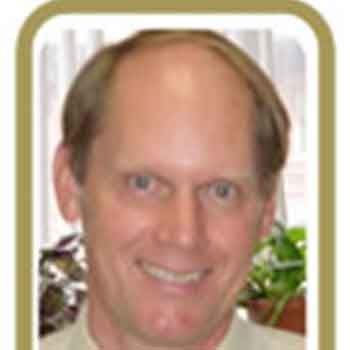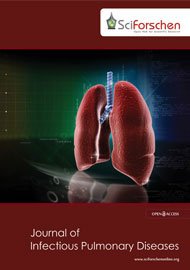
Professor of Medicine
Boston University School of Medicine
USA
Education
- College Education: Washington and Jefferson College, B.S. 1977
- Graduate School/PhD Program: Boston University, Ph.D. in Biochemistry 1988.
Biography
Dr. Cruikshank received his doctorate degree in Biochemistry in 1989 from Boston University School of Medicine, in Boston Massachusetts. During the past 37 years his research focused on the biology of CD4 as it relates to its natural ligand, Interleukin-16. Dr. Cruikshank, along with Dr. David Center, discovered IL-16 in 1980. They have well over 150 papers describing IL-16 as it relates to the sequence, tertiary structure, interaction with CD4, intracellular signaling events, cellular responses, as well as IL-16’s presence and function at sites of inflammation. As a pulmonary immunologist Dr. Cruikshank’s research has primarily focused on inflammation associated with the initiation and perpetuation of an asthmatic response. Dr. Cruikshank has now shifted his focus to tuberculosis and taken a position with Oxford Immunotec as Director, Scientific Affairs.
Research Interest
- Asthma
- Mycobacterium Tuberculosis and M. Avium (detection, LTBI, active infection)
- T lymphocytes (activation, chemotaxis, cytokine production)
- Allergic inflammation
Professional Activities:
Academic appointments:
- 2012-2015 Director of Molecular and Translational Medicine Graduate Program
- 2012-2015 Assistant Dean of Diversity and Multicultural Affairs
- 2012-2015 Professor of Pathology and Laboratory Medicine
- 2002-2015 Director of Immunology, Pulmonary Center
- 2001-2015 Professor of Medicine, Boston University School of Medicine
- 1995-2001 Associate Professor of Medicine, Boston University School of Medicine
- 1990-1995 Assistant Professor of Medicine, Boston University School of Medicine
Industry positions:
- 2016-present Director, Scientific Affairs, Oxford Immunotec
- HONORS:
- 1997-2000 Career Investigator Award from the American Lung Association
- 1990-1993 American Federation for AIDS Research Fellowship
- 2014 Inducted into the National Academy of Inventors
Departmental and university committees:
- 2014-2015 Member, Evans Foundation Board of Directors
- 2013-2015 Director of the Summer Training as Research Scholars (STaRS) program for underrepresented
- minority undergraduate students
- 2013-2015 Chair of the PiBS admission committee
- 2013-2015 Member PiBS Executive Committee
- 2012-2015 Member of the MD/PhD admission committee
- 2007-2014 Chair, BUSM IACUC
- 2005- 2015 Member Immunology Training Program
- 2004- 2014 Member of the BUMC IACUC
- 2002- 2015 Member and pre-PhD supervisor of the Pulmonary Center Executive Committee
- 1995-2015 Member of the Radiation Isotope Committee, BU School of Medicine
Professional Societies: Memberships, Offices, And Committee Assignments
- 1989-present American Association of Immunologists
- 1997-2007 American Thoracic Society
Publications
- Skundric, D., R. Dai, V. Zakarian, D. Bessert, R. Skoff, W. Cruikshank, and Z. Kurjakovic. 2005. Anti-IL-16 therapy reduces CD4+ T-cell infiltration and improves paralysis and histopathology of relapsing EAE. J. Neurosci. Res. 79:680-693.
- Wilson, K., D. Center, and W. Cruikshank. 2004. The effect of interleukin-16 and its precursor on T lymphocyte activation and growth. Growth Factors, 22:97-104.
- Pritchard, J., S. Tsui, N. Horst, W. Cruikshank, and T. Smith. 2004. Synovial fibroblasts from patients with rheumatoid arthritis, like fibroblasts from Graves’ disease, express high levels of IL-16 when treated with Igs against insulin-like growth factor-1 receptor. J. Immunol. 173:3564-3569.
- Little, F. and W. Cruikshank. 2004. Interleukin-16 and peptide derivatives as immunomodulatory therapy in allergic lung disease. Expert Opin. Biol. Ther. 4:837-846.
- Center, D., W. Cruikshank, and Y. Zhang. 2004. Nuclear pro-IL-16 regulation of T cell proliferation: p27(KIP1)-dependent G0/G1 arrest mediated by inhibition of Skp2 transcription. J Immunol. 172:1654-60.
- Pritchard, J, R. Han, N. Horst, W. Cruikshank, and T. Smith. 2003. Immunoglobulin activation of T cell chemoattractant expression in fibroblasts from patients with Graves’ disease is mediated through the insulin-like growth factor I receptor pathway. J. Immunol. 170:6348-6354.
- Komata, T., W. Cruikshank, and A. Kelso. 2003. Sustained linked stimulation via CD3 and CD4 is required for the IL-4-independent development of IL-4 synthesizing CD4+ T cells. Immunol. Cell Biol. 81:283-288.
- Little, F., E. Lynch, G. Fine, D. Center, and W. Cruikshank. 2003. Tumor necrosis factor-alpha-induced synthesis of interleukin-16 in airway epithelial cells: priming for serotonin stimulation. Am. J. Respir. Cell Mol. Biol. 28:354-362.
- Lynch, E., C. Heijens, N. Horst, D. Center, and W. Cruikshank. 2003. Cutting Edge: IL-16/CD4 preferentially induces Th1 cell migration: Requirement of CCR5. J. Immunol. 171: 4965-4968.
- De Bie, J., P. Henricks, W. Cruikshank, J. Hoevenaars, F. Nijkamp, and A. Van Oosterhout. 2002. Exogenous IL-16 inhibits antigen-induced airway hyperreactivity, eosinophilia and Th2-type cytokine production in mice. Clin. Exp. Allergy, 32:1651-1658.
- Pritchard, J., N. Horst, W. Cruikshank and T. Smith. 2002. Immunoglobulins from patients with Graves’ disease induce the expression of T cell chemoattractants in their fibroblasts. J. Immunol. vol 168:942-950.
- Little, F., D. Center, and W. Cruikshank. 2002. IL-9 stimulates release of chemotactic factors from human bronchial epithelial cells. Am. J. Respir. Cell Mol. Biol. 25:347-352.
- Van Drenth, C., A. Jenkins, L. Ledwich, T. Ryan, M. Vallen-Mashikian, W. Brazer, D. Center andW. Cruikshank. 2000. Desensitization of CXCR4, mediated by IL-16/CD4, is independent of p56lck enzymatic activity. J. Immunol. 165:6356.

